#but i find the character render style unappealing personally
Text
*sees art of the HH characters not in VP's art style*
OH OKAY- I see some of the appeal is now...
#think this is legitimately the first time I've had trouble getting into something because of an art style#bc- as much as I hate to admit it there are a lot of aspects of that show that I could genuinely see myself really liking#but i find the character render style unappealing personally#I also literally grew up dealing with VP on deviantART back in the day and im tired of her always generating drama#like this whole thing literally started over a squabble with her friend about stealing a character design that they came up with together#(if I remember right)#like I honestly don't care about her as a person! I don't really care much about the people involved!#I'm just tired of the fact that I have been hearing people complain about her for no discernible reason for at least 15 years now#if anything I respect the hustle
0 notes
Text
I rate Sigma Overwatch’s sprays from 0-10
alright lets go, just going in the order that these files come in this folder

1000/10: Because I get to see him sitting and even though he’s thinking hard about something he’s throwing a bouncy ball to help him focus. Also his hair is particularly white here and I think thats very sexy old man of him.

50/10: Catbox, Catboy, its all the same theory. Sigma likes catboys, not up for debate. We know why.
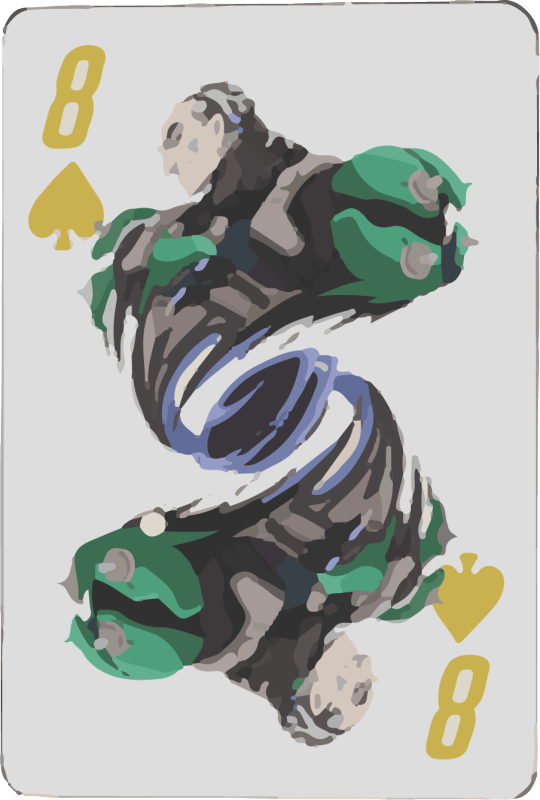
3/10: Just not fond of it. I know the sprays and their rendering gets super obscured but this one just got absolutely decimated I guess. Just being real with yall.
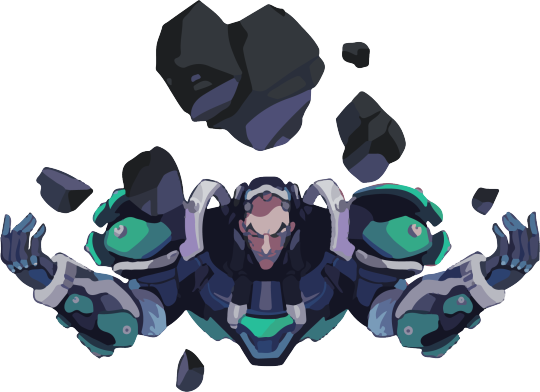
10/10: Like the shading colors, he’s smirking. Rock vaguely looks like a heart. Love that for him.
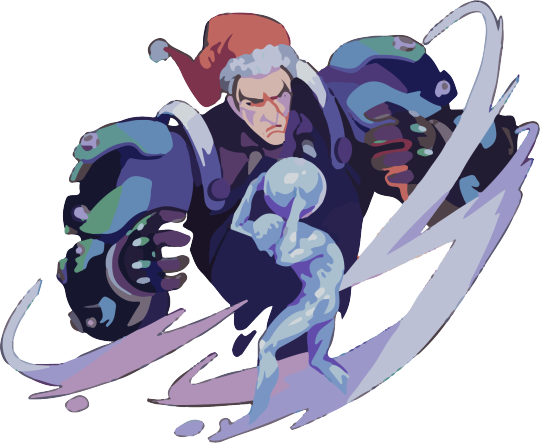
6/10: I just don’t like how the hat was drawn. I don’t think it needed to be there or could’ve been shaped better. Other than that decent spray. Wish he was happier looking though.

9/10: I have this spray as a sticker and its just very cute fsr. Its simple and the color is exquisite and nice on the eyes.
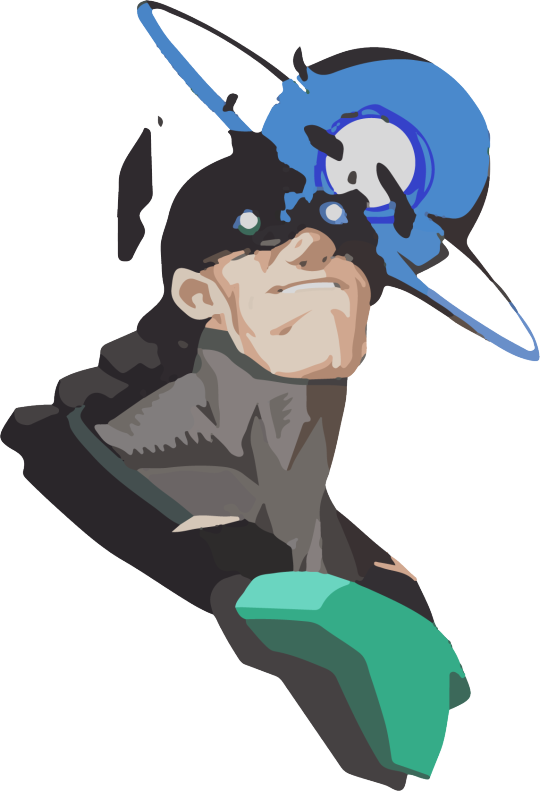
100000000000/10: There is something mysteriously and eerily sexy about this spray and it’s one of my favorites.

2/10: Just because he is my husband doesn’t mean I’m not going to be an honest man. I Highly Dislike this spray because I think the art style is unappealing af. It’s just a personal preference, I hate all of the sprays that come in this style.
i didnt realize how long this post was going to be so im doing the rest under the cut to spare everyone else’s life:

9/10: Solid rating with no goofing. While I take up some issues with some of the expressions in his other sprays showing pain, there is something about the composition of this one that I absolutely love. Its very aesthetic for me, speaks to his character, and the colors are beautiful. Wish his eyes were his usual periwinkle though which is why this isn’t receiving a perfect score.

5/10: Not really sure what it is about this one that I’m not so fond of. I can appreciate the colors and his profile. But other than that theres something visually here that I don’t find appealing. Not sure what it is.
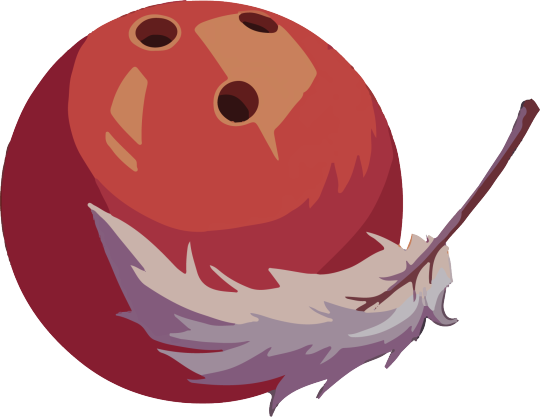
8/10: Decent rating, its nothing crazy. Since reference and has nice colors but thats about all my critique for this one.
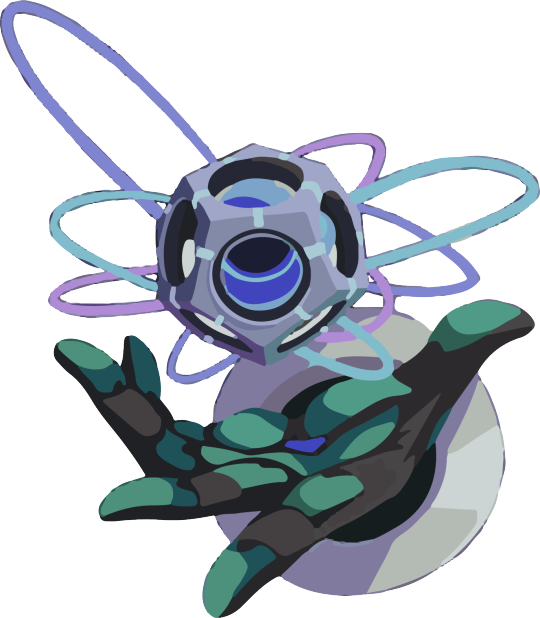
11/10: Lovely hand, lovely gesture. Wanna squish the bean pads. Nice colors.
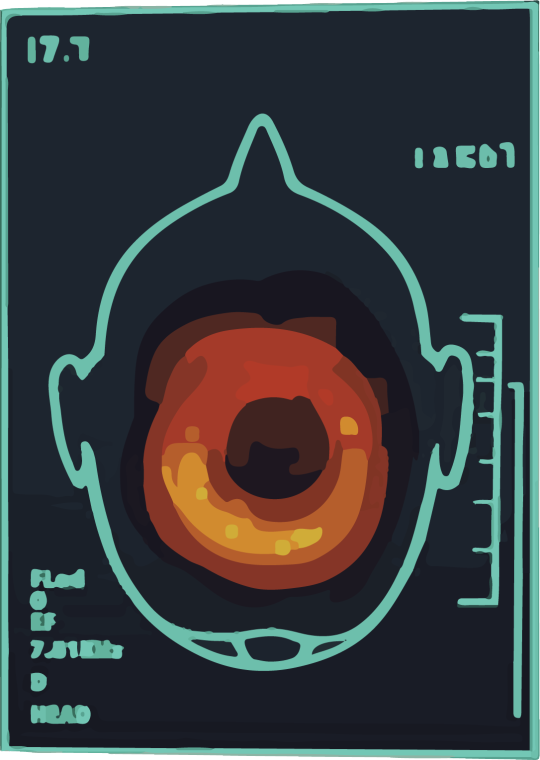
6/10: This one is actually one of my favorites despite the rating not being solid. Only because while I love the colors and the concept, the idea of it makes me sad. The idea that it reflects Sieb’s trauma makes me sad, despite it being a rational depiction of such.

50000000/10: love little christmas charm sieb, hope he gets a skin of this outfit some day. Hes so cute. Happy smiles thats all I want. I could kiss him.

3/10: CONTRARY TO POPULAR BELIEF I’M NOT ACTUALLY SUPER ABOUT THIS SPRAY. WHY? Because I’m being nitpicky and I want him receptors on the sides to be THE TEAL THAT THEY ARE. Not GREEN.

5/10: I feel like halfway rating with this one is fair. I like to imagine that thats Sieb’s hand writing and that makes me happy. But this spray is hard to look at for long periods of time because this kind of text squish is hurtful on my eyes.
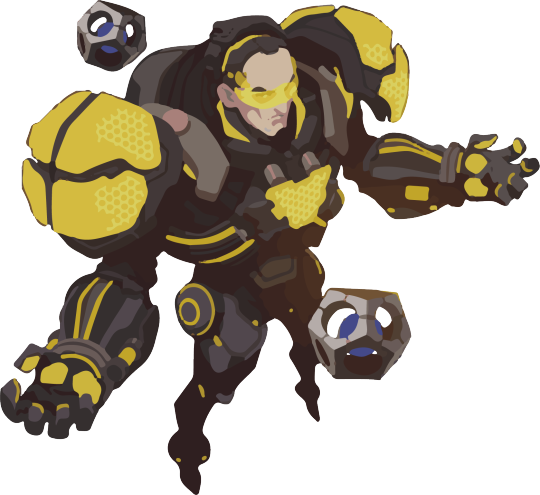
9/10: I actually hate this skin but fsr the spray makes it incredibly sexy. It actually got sexier the second time (this time) that I looked at it. Good for him.
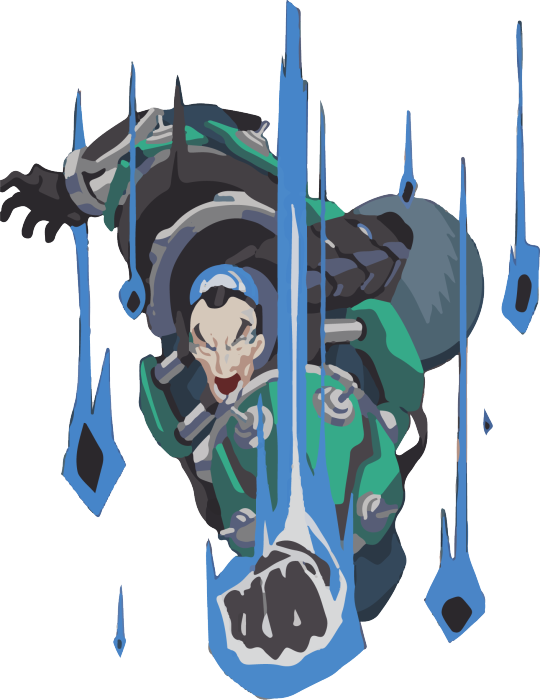
6/10: Reasons for this rating, while I love the pose and intimidation this spray is posing, I also get sad to see Sieb’s strained expressions. I think his powers do have limits and they do effect him depending. And seeing all this big ass heavy equipment on him gives me conflicted feelings. He has a lot to carry, and he’s just lucky he has gravity powers to help. (I mean this metaphorically and literally.)

7/10: I love the art and concept on this one. He’s just so grumpy looking is all. My poor boy.
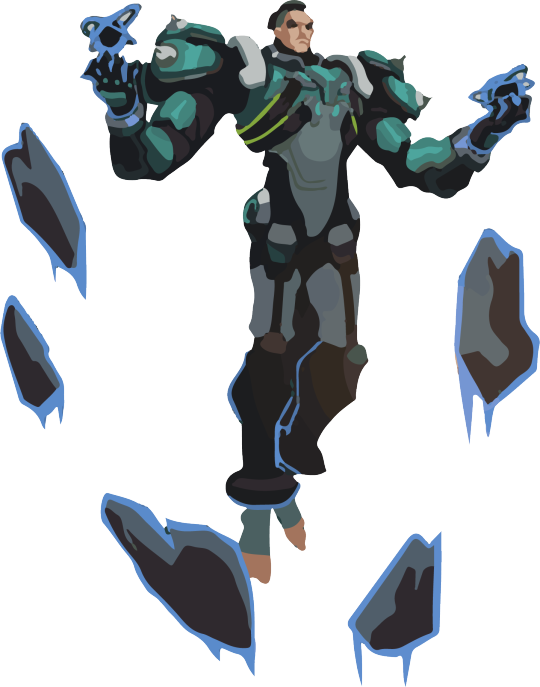
9/10: He’s 7 ft tall and it shows and I am here for it.

9/10: Remember when I said I was conflicted about seeing all that equiptment on him? Well its true, but I’m just going full thirst on this spray to say look at how fucking massive this man is. I want him to grab me with those hands and pitch me like a baseball.

4/10: The pained expression in this along with the concept of it (as well as connection once again to his trauma) unsettles me and makes me feel the brain hurting juice. Nothing further.

1000000000000000000/10: This is one of my favorite sprays because its just casual work setting and gives me more insight on his lab uniform. His hair here also gets me barking like a rabid chihuahua.
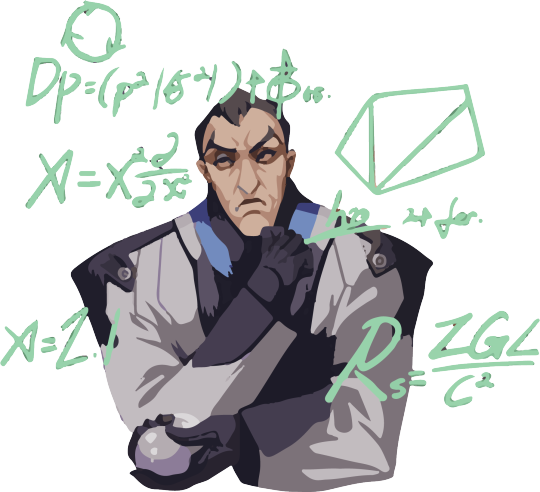
10/10: This gets a solid rating for A) Lab Coat Outfit and B) Seeing him again with the help of an object to stim while he thinks. (The squeeze ball)
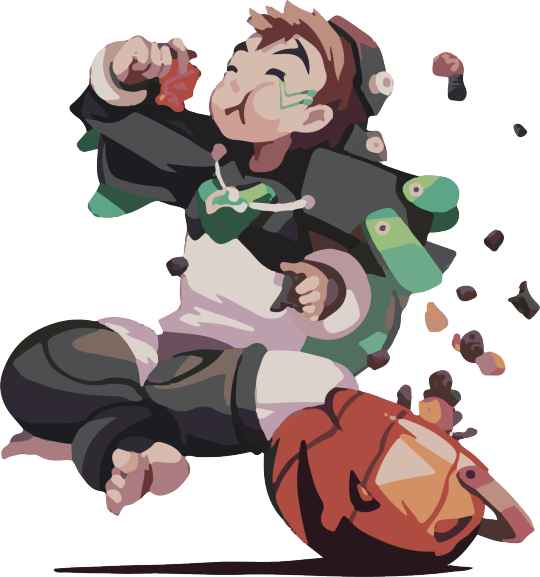
10/10: I cant not give halloween Sieb a solid score. I think this is adorable, but I don’t believe it’s Sieb as a kid. I think it’s just a child dressed up like him with no attachment to lore or anything. But its still very cute.

100/10: I love the pixel sprays so much, simple and cute.
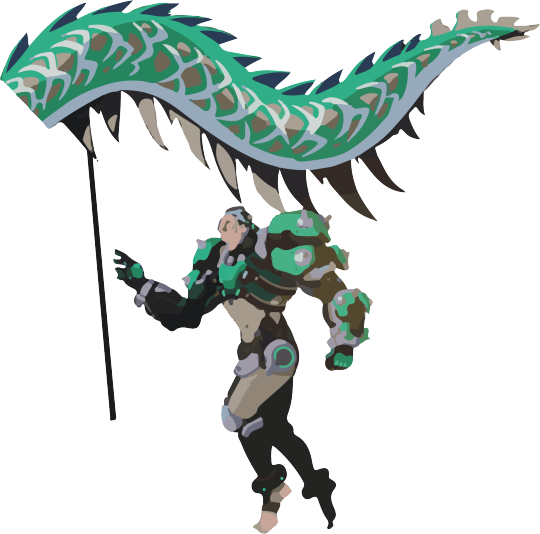
6/10: I’m really not too crazy about the pose for the dragon spray. I feel like they could’ve done something a little more dynamic especially given he has gravity powers. But alas.

9/10: This spray is on the same level as the apple head spray from earlier on in the post. Congrats if you’ve made it this far btw. But I love the soft expression on the left being challenged with the frightened/frustrated one on the right.

0/10: I am not fond of this spray because of how much pain he appears to be in along with the implications all the junk flying around him has. Upsets me.
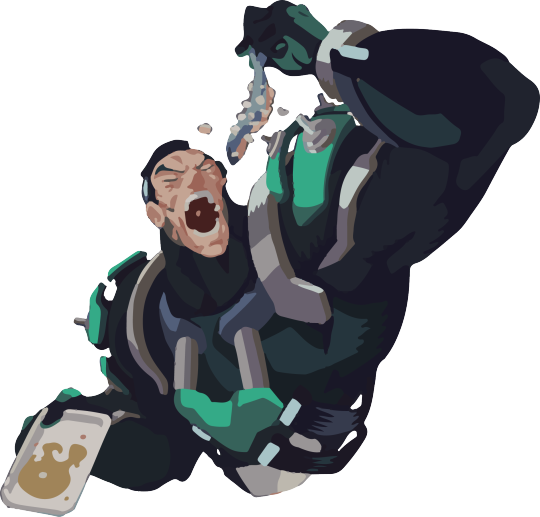
50/10: I don’t care about the fish onions I just care about looking at my husbands huge ass arms and seeing him enjoy a smelly fish treat. Its what he deserves. Also what that mouth do.
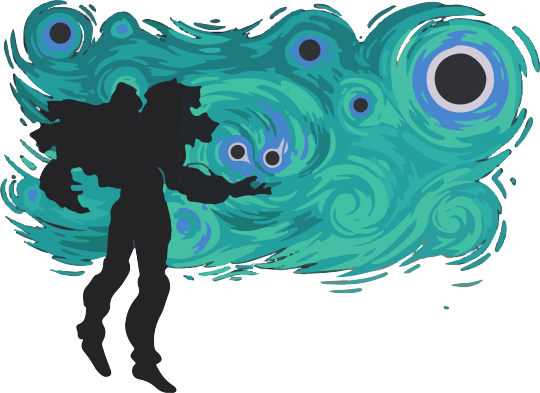
10/10: Solid perfect score because I have strong emotions about Van Gogh. And I think the interest between Siebren and Van Gogh, especially as two men who were/are fighting with mental illness speaks volumes about Sieb’s character. This spray makes me feel something in my chest that I can’t whole heartedly explain, but it isn’t a bad thing.

10/10: Another perfect score, because I think this spray is a good mixture of Sieb’s character between the musical elements and his scientific work. He’s also smiling which is rare to find in his sprays.
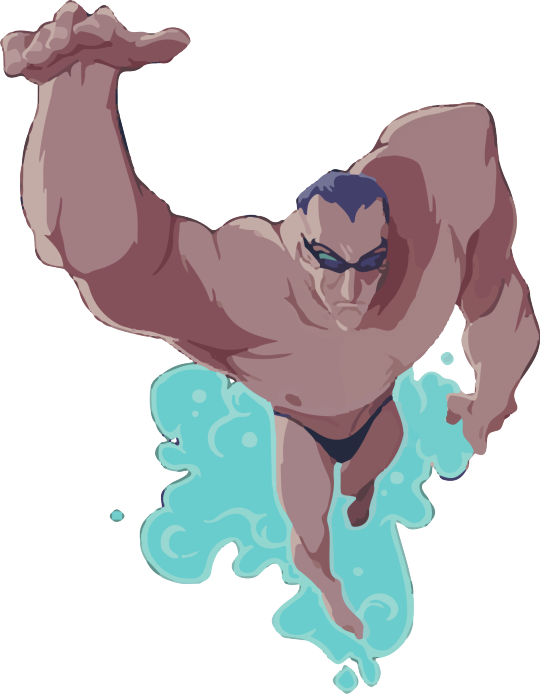
544386238043723507435742634387236804307403857435748035474803548744307384385740385748037408357438570480bark bark barK BARK /10: sexiest image in the entire game of overwatch nobody @ me i dont take constructive criticism
#this is a half serious half shit post post#siebren de kuiper#sigma overwatch#sigma#ita speaks#i have spoken
170 notes
·
View notes
Text
Chapter 85: This Provincial Life
In researching for this essay, I stumbled across this gem, published by The Guardian in 2002. It’s AS Byatt, of Possession fame, reacting to Madame Bovary, which she read first when she was working as an au pair in France. (And if that isn’t just the most badass, appropriate time to read Madame Bovary, I don’t know what is.) The whole essay is beautiful, but I’ve excerpted it here.
Reading Madame Bovary for the first time was one of the most terrifying experiences of my life - at least up to that point. I was a very young woman - not even eighteen. I was au pair in the French provinces in the 1950s, and I read Madame Bovary in French, sitting in the furrow of a vineyard. I was like Emma Rouault before she became Madame Bovary, someone whose most intense life was in books, from which I had formed vague images of passion and adventure, love and weddings, marriage and children. I was afraid of being trapped in a house and a kitchen.
Madame Bovary opened a vision of meaninglessness and emptiness, which was all the more appalling because it was so full of things, clothes and furniture, rooms and gardens. The worst thing of all was that it was the books that were the most insidious poison. Recently Madame Bovary appeared in a British newspaper listing of the 'fifty best romantic reads.' It was, and is, the least romantic book I have ever read. If I have come to love it , it is because now I am half a century older, and not trapped in a house and kitchen, I can equably sympathise with the central person in the book, who is its author - endlessly inventive, observant, and full of life.
Madame Bovary was published in 1856-7 and is at the centre of any discussion of the European realistic novel of bourgeois life - especially provincial life. The nineteenth-century novel, however much it criticises the bourgeoisie, is a bourgeois form that grew up with the prosperous middle classes who had time for reading, and were interested in precise discriminations of social relations and moral and immoral behaviour. The novel was interested in the structures of societies - from money to education, from religious habits to kinship and marriages, from ambition to failure. Fairy tale images, the hopes of princesses and kitchenmaids, of youngest sons and poor old women, are contained in but also corrected by the realist novel. Fairy stories end with the lovers marrying and living happy ever after. Jane Austen's novels keep that pattern. The great realist novels study at length what happens after marriage, within marriages, within families and businesses. One of the great subjects of the realist novel is boredom - narrow experiences in small places and unsympathetic groups. There is no greater study of boredom than Madame Bovary - which is nevertheless never boring, but always both terrifying and simultaneously gleeful over its own accuracy.
Madame Bovary is also at the centre of any discussion of literary descriptions of adultery. The outward events of Emma Bovary's life are a petit bourgeois version of the doom of Anna Karenina - with important differences. Both heroines have sexually unappealing husbands, and lives that leave them dissatisfied. Both take lovers and both, in their ways, are betrayed or let down by their lovers. Both are sensual and vulnerable and both commit suicide. It might even be said that both are physically attractive to the men who invented and trapped them in their stories, and that both are punished by their authors, as well as by society. Anna Karenina is tragic almost despite Tolstoy. But if Emma Bovary - who is small-minded and confused and selfish - is tragic, it is not in a romantic way, and not because her readers share her feelings or sympathise with her. Our sympathy for her is like our sympathy for a bird the cat has brought in and maimed. It flutters, and it will die.
When Emma Rouault marries Charles Bovary - the fairy tale happy ending - she becomes the third Madame Bovary in the book, after her living mother-in-law and Charles Bovary's dead first wife, whose decaying wedding bouquet she finds in her drawer. Her name, and the title of the novel, define her as a person who is expected to behave in certain ways, fitting her station and function. She loses what individual identity she had. She herself has had vague conventional expectations of marriage, and Flaubert wonderfully describes her sexual disappointment, her reluctance to let go of the idea that she is experiencing post-wedding bliss. He also describes her fairytale, women's magazine attempts to make her house and clothes conform to an idea she has of decorum and elegance. What makes it impossible for her to inhabit her house or her marriage is her romantic sense that there is something more, some more intense experience, some wider horizon if she could only find it.
It is not a nice story. So why is it one of the greatest novels of all time? To answer that, it is necessary to look at the history of its writing, and Flaubert's ideas about what he was trying to achieve.
Flaubert was born in 1821 in Rouen, where his father was the chief surgeon at the Hôtel-Dieu hospital. His father hoped that Gustave would also be a doctor but the son seems always to have known that he wanted to write. He lived most of his life in Normandy, though he travelled often to Paris and in 1851 travelled with his friend Maxime du Camp in Egypt, the Near East and the Mediterranean. He contracted syphilis on this journey, and was also subject to severe epileptic fits. He never married, and lived close to his mother. He had a long, unsatisfactory affair with Louise Colet, eleven years older than he was, and also a writer, who saved his splendid letters. He had himself a Romantic interest in the distant and strange, both in space and in time. In 1849 Flaubert finished writing La Tentation de Saint Antoine, inspired by a painting by Brueghel he had seen in Genoa in 1845, which depicted the ascetic saint in the desert beset by demons and fleshly temptations. He did a great deal of research on fourth century beliefs, pagan, Christian and heretical, and staged his tale as an exotic drama of ideas. In 1849, just before setting out for Egypt with Du Camp, he spent - according to Du Camp - thirty-two hours reading the text aloud to him and his other great friend Louis Bouilhet. Also according to Du Camp, Bouilhet, when Flaubert finally demanded his opinion of the work, said 'I think you should throw it into the fire and never speak of it again.' Flaubert was understandably distressed by this response. In 1851 he abandoned various other romantic and exotic projects - Une Nuit de Don Juan, Anubis - and embarked on his novel of provincial life. The immediate inspiration for the plot was the death of a local doctor in Normandy, Eugène Delamare, whose second wife, Delphine, had caused scandal by taking lovers and running up huge debts. But already at the age of sixteen Flaubert had written a tale based on a news story in the Rouen newspapers. He called it Passion et Vertu. Its central character is a woman who poisons her husband and children in order to join her lover in America, and commits suicide when the lover rejects her. Flaubert gave his murderess and suicide romantic tastes as motivation, whereas the original woman seems to have been driven more by money and a desire to evade trial and execution.
Flaubert's published letters - especially those to Louise Colet about the writing of Madame Bovary - are some of the most fascinating accounts of the writing process that exist. He tells her he is 'two distinct persons: one who is infatuated with bombast, lyricism, eagle flights, sonorities of phrase and lofty ideas; and another who digs and burrows into the truth as deeply as he can, who likes to treat a humble fact as respectfully as a big one, who would like to make you feel almost physically the things he reproduces.' And early in the writing of the novel he says 'The entire value of my book, if it has any, will consist of my having known how to walk straight ahead on a hair, balanced above the two abysses of lyricism and vulgarity (which I want to fuse in a narrative analysis.) When I think of what it can be, I am dazzled.' He wrote also that his new novel would be 'a book about nothing, a book dependent on nothing external, which would be held together by the external strength of its style, just as the earth, suspended in the void, depends on nothing external for its support; a book which would have no subject, or at least in which the subject would be almost invisible, if such a thing is possible.' He was both excited and exhausted by the difficulty of the enterprise - Bovary, he told Louise in July 1852, 'will have been an unprecedented tour de force (a fact of which I alone shall ever be aware): its subject, characters, effects etc. - are all alien to me. Writing this book I am like a man playing the piano with lead balls attached to his knuckles.'
The prose of Madame Bovary depends for many of its most startling effects on its accurate rendering of things. Flaubert told Louise that he wanted to make his reader feel his world 'almost physically' and the emotion and feeling of the novel are embedded in things, from Charles's uncouth cap in the first chapter, to Emma's delicate presentation of her meals, to her presents to Rodolphe.
Emma makes herself an image of domestic finesse and elegance, slightly absurdly beyond the limitations of her, and Charles's social situation. Her whole world is imbued with her sensations - we experience her most intensely through them, because she does not think clearly or well in abstract language, but only with images. Occasionally Flaubert's choice of comparison carries with it a lyric charge. Here is his description of Emma's vision of her garden in winter, when she has become bored and disillusioned. She is seeing a winter world through windows heavily frosted, whose whitish light remained unvaried throughout the day. She goes into the garden, which is a place loaded with Madame Bovary's ennui and her way of seeing. The cabbages have taken on silver lace trimmings from romance. The idea of paradise is excluded from this real place. The vine is just a vine, not the True Vine, and is indifferently identified with the serpent, who is sick. 'Cloportes' which drag themselves along are not angels to close the gates but woodlice. The verbs are in the indefinite past - 'seemed to sleep' and 'saw... dragging themselves along.' Flaubert wrote that he liked 'clear sharp sentences... which must be clear as Voltaire, as abrim with substance as Montaigne, as vigorous as La Bruyère, and always streaming with colour.' He orchestrates the colours of the book as he orchestrates Emma's and the reader's sensations - in the passage I have just quoted silver and white, elsewhere, notably in the seduction in the forest, the blue of romantic distances, which is transmuted into the blue of the bottle of arsenic powder Emma steals from Monsieur Homais.
The effect of his spreading of the feeling of the characters, and the novels, into the physical world, varies with the distance from which the narrator watches the things. It is not clear, when Flaubert describes Charles Bovary's first vision of Emma's flesh, exactly where Charles's thoughts end and authorial commentary begins. 'Tout en cousant, elle se piquait les doigts, qu'elle portait ensuite a sa bouche pour les sucer.' This is an erotic simple sentence, and it presents the young woman as unselfconscious and awkward with household tasks. It is followed by a long analysis - from very close - of her finger-nails, ostensibly from Charles's point of view, though in fact there are several elements of the description which read oddly if the reader looks, so to speak, out of Charles's head.
It is not exactly Charles's thought - or sensation - process. It appears to be, and some critics have seen in the ostensible use of the technical 'phalanges' and the possibly diagnostic note of the absence of 'molles inflexions' Charles's 'medical' eye. But the Charles whose life we have so far followed is not in the habit of making such precise discriminations about what is and is not beautiful. And the romantic comparison with the ivories of Dieppe is not Charles Bovary's, nor is the tone of voice describing the effect of Emma Rouault's 'regard' on an abstract 'you' which includes both the narrator and the reader? It is Flaubert mingling, but not fusing, his characters' relations to the physical world with his own.
Something similar happens when he tries very directly to involve us in a physical analogy which he ascribes directly to Madame Bovary herself. In this case she is thinking in a conventional way about why she wanted a son not a daughter. 'Un homme au moins est libre; il peut parcourir les passions et les pays.'
Here again, although the comparison between the veil and the female consciousness inside it is a beautiful physical image of the constraints of a woman's view of the world and of her volatile will on its string or cord, I do not quite believe the comparison is one Madame Bovary generated or thought out. It is beautifully articulated and precise, and is part of Flaubert's vision of his creation, not of her vision of her world. It is almost a complex metaphor - and complex metaphors, as we shall see, are not the way in which Madame Bovary proceeds.
Further passages describe Emma's world, and moves from the novels she reads to her uncomprehending but admiring husband and out, by way of the dumb animal to the world of inanimate objects. But those objects have a buried metaphorical meaning, in that - still described in the indefinite past tense of prolonged states of being - the burning logs in the hearth and the pendulum of the clock do represent the passing of time through the stasis of boredom. The logs and the clock are in a way Flaubert's metaphor for the movement of Emma Bovary's life, all the more effective for not being presented as metaphor, but simply as real objects. This precision and simplicity has the effect of making the whole book into one worked image, memorable for a reader simultaneously as a direct physical experience and as a whole as an articulated image for a certain state of things, the world of ennui, romantic longing, and physical restriction. Flaubert admired his heroic artists - Rabelais, Shakespeare, Cervantes - for their power to create simple, absolute types and scenes. He says somewhere that great art can appear almost silly, stupid, in its self-sufficiency. His descriptions have exactly that self-sufficiency, a simplicity of presence which is meaning.
Flaubert may appear to keep a controlled and glacial distance from his fictional world. In fact his attitude to it was double. He told Louise Colet 'Rien dans ce livre n'est tiré de moi . . . Tout est de tête', but he also told Amélie Bosquet, famously, 'Madame Bovary c'est moi! - d'après moi.' His mother told him 'Your mania for sentences has dried up your heart'. But he lived the moments he was writing intensely - 'for better or worse it is a delicious thing to write, to be no longer yourself, but to move in an entire universe of your own creating. Today, for instance, as man and woman, both lover and mistress, I rode in a forest on an autumn afternoon under the yellow leaves, and I was also the horses, the leaves, the wind, the words my people uttered, even the red sun that made them almost close their love-drowned eyes.' And when he came to kill Madame Bovary he imagined her agony so intensely that he tasted the bitterness of the arsenic in his own mouth, to the point of vomiting.
When the novel was finished, Flaubert sent it to Bouilhet to be published in six bi-monthly parts in the Revue de Paris. Bouilhet sent him a letter which is a warning to all editors tempted to respond to complex manuscripts with confident proposals for improvement.
'Let us take full charge of the publication of your novel in the Revue; we will make the cuts we think indispensable. My personal opinion is that if you do not do this, you will be gravely compromising yourself, making your first appearance with a muddled work to which the style alone does not give sufficient interest. Be brave, close your eyes during the operation, and have confidence - if not in our talent, at least in the experience we have acquired in such matters and also in our affection for you. You have buried your novel under a heap of details which are well done but superfluous: it is not seen clearly enough, and must be disencumbered - an easy task. We shall have it done under our supervision by someone who is experienced and clever; not a word will be added to your manuscript, it will merely be pruned; the job will cost you about 100 francs which will be deducted from your payment, and you will have published something really good instead of something imperfect and padded. . .'
Flaubert, understandably, objected furiously. The novel was finally published in the review with only one cut - perhaps the most famous scene - the wild journey of the cab through the streets of Rouen, the box inside which Emma consummates her affair with Léon. Madame Bovary was nevertheless prosecuted by the police for obscenity in January 1857. Flaubert and his publishers were acquitted on February 7th; Flaubert was afraid the Ministry of Justice would appeal but it did not, and the notoriety added to the book's success, not entirely to Flaubert's pleasure - he said he disliked Art to be associated with things alien to it. In later years, after the publication of Salammbô, (1862), a novel about a Carthaginian princess, L'Education Sentimentale in 1869, and his Trois Contes in 1877, he complained about the excessive notoriety of Madame Bovary, as authors do when they feel one of their books is being singled out at the expense of others.
Contemporary writers were made uneasy by Flaubert. Henry James expressed a recurrent unease which he said was experienced by the 'alien reader' and persisted. 'Our complaint is that Emma Bovary, in spite of the nature of her consciousness and in spite of her reflecting so much that of her creator, is really too small an affair.' DH Lawrence, a naturally visionary and prophetic realist himself, was more vehement. Flaubert, he said, 'stood away from life as from a leprosy.' Even Proust, writing his precise and elegant defence of Flaubert, begins with a caveat. 'Ce n'est pas que j'aime entre tous les livres de Flaubert, ni même le style de Flaubert.' All these express an unease which persists in readers faced with this very great novel. But between seeing Emma Bovary as 'really too small an affair', and Flaubert's vision of life as a leprosy, and understanding that Madame Bovary, with all its realistic nineteenth-century apparatus, is the beginning of a new vision, a modern vision, is only a step. The resolution with which Flaubert polished his perfect surface, and kept it almost purely surface, not transparent, not revealing any deeper meaning than its existence, is behind the nausea of Sartre's Roquentin, and the reduced worlds of Beckett's bare survivors. Its beauty is enchanting and terrible. It shows us implacably the limitations of our habitation in our bodies, in space and time. Emma Bovary is indeed 'really too small' but there is a sense in which she is a type of everywoman. Flaubert's relentless and fastidious observation and creation of his small world is itself a form of contemplation. He shows us laughter, irony and fear. And in the end gentleness, for sad, stupid, honest Charles, and silly, greedy, unsatisfied Emma. And grief for an unconsidered accidental daughter, who comes to a sad - and probable - end.
PAGE COUNT: 34,479
BOOK COUNT: 85/100
0 notes